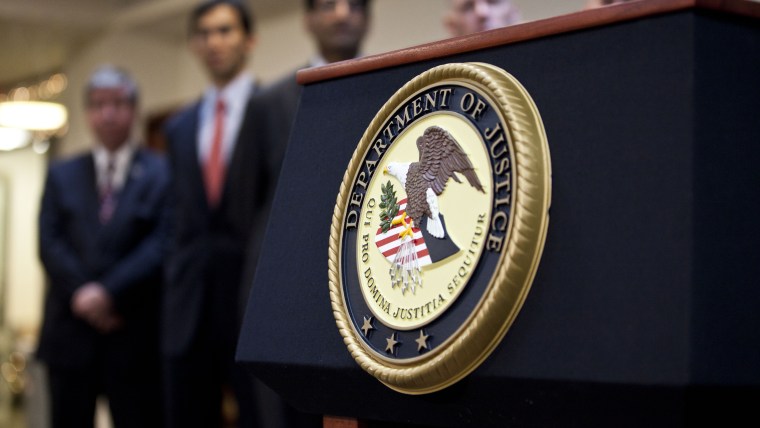For the better part of a year, two of Donald Trump's favorite words have been "no collusion." The president seems to understand that the investigation into the Russia scandal is serious, and he seems to realize that Special Counsel Robert Mueller and his team are exploring whether Moscow had help during its attack on American elections in 2016.
With this in mind, Trump has been eager to exonerate himself from the idea that his campaign was in league with Russian operatives during their intelligence operation against the United States.
But presented with all kinds of evidence pointing to cooperation between Trump's political operation and Russia during its attack, the president and his team have hedged a bit. Trump said in December, for example, "There is no collusion, and even if there was, it's not a crime."
Around the same time, Jay Sekulow, a member of the president's legal defense team, added that even if Trump World colluded with Russia, it would be irrelevant as a criminal matter. Sekulow said, "There is not a statute that refers to criminal collusion. There is no crime of collusion."
The point wasn't subtle. Trump and his team desperately want the public to believe there was no collusion, but they also seem to recognize the possibility that the Republican campaign really did cooperate with the foreign adversary during its attack on our democracy -- so they've made the case that such collusion would be perfectly permissible under the law.
The funny thing is, the Justice Department apparently disagrees with Trump World's legal analysis.
The New Yorker's Jeffrey Toobin had a fascinating item this week on a Justice Department filing in the case against Paul Manafort, Trump's former campaign chairman, who wants the charges against him dismissed because, as Manafort's lawyers have argued, the indictments fall outside of Mueller's authority as special counsel.
In response to this claim, Mueller filed a brief that laid out the basis for him to bring the case. As described in the brief, after Mueller was appointed, in May of last year, he asked Rod Rosenstein, the Deputy Attorney General and Mueller's supervisor, for specific authorization for the areas that he wanted to investigate. In a memorandum issued on August 2nd, Rosenstein spelled out the details of Mueller's jurisdiction. [...]That statement could not be clearer that Mueller can examine whether a member of the Trump campaign and the Russians were "colluding," and thus working together "in violation of United States law." In other words, according to Rosenstein, collusion would be a crime.
Toobin fleshed this out in more detail -- his piece is worth your time -- but the bottom line remains the same. Trump and his legal team believe colluding with a foreign power during its attack against our elections is, technically, not a crime.
Trump's Justice Department appears to have reached the opposite conclusion. That doesn't necessarily mean others from Trump World will be indicted, but it does mean the rhetoric we've heard from the president and his legal team was wrong.
